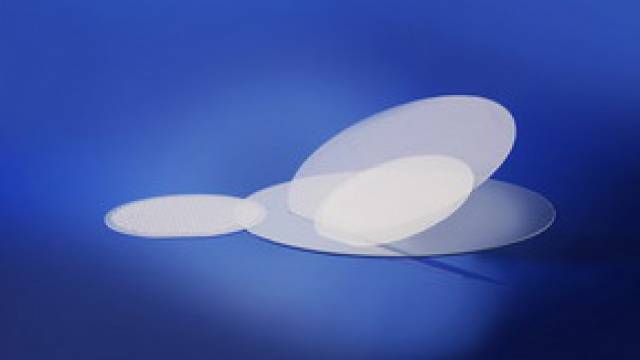Schott Advanced Optics is the only supplier in the world to offer a material family for ultra-thin glass wafers with different product characteristics and customized features. The three different types of glass wafers are made from AF32® eco, D 263T® eco and MEMpax®.
The international technology company Schott with its business unit Advanced Optics is the only supplier in the world to offer a material family for ultra-thin glass wafers with different product characteristics and customized features. The three different types of glass wafers made from AF32® eco, D 263T® eco and MEMpax® are complementary to various semiconductor wafers and thus well-suited for a many applications in the semiconductor industry.
Schott, with more than 125 years of optical glass experience, has a long standing history in producing thin glass with various proprietary production processes. AF 32® eco, D 263® T eco, and MEMpax® are three different processed glass types produced in a special down-draw process which guarantees a fire-polished surface with a surface roughness smaller than 1 nanometer. “Our materials provide a major advantage to the semiconductor industry because the glass properties can be perfectly matched with the respective application,” says Uwe Wilkens, the responsible product marketing manager at Schott.
AF 32® eco is an alkali-free flat glass, available in thicknesses from 1.1 down to 0.1mm. Its coefficient of thermal expansion matches that of silicon, therefore it is well-suited as optical wafer-level packaging material in semiconductor-related applications. Due to its high transformation temperature it can be used for applications up to approximately 600°C. Target applications include camera imaging, wafer level chip size packaging, MEMS and wafer level optics. AF 32® eco is manufactured with eco-friendly refining agents.
D 263® T eco thin glass is a clear borosilicate glass that has a high chemical resistance. D 263® T eco is well-suited as a substrate glass for IR cut-off filter for camera modules in mobile phones, offering high luminous transmittance, easy processability and a range of thicknesses between 1.1 and 0.1mm which enables easy adaptation for future product miniaturization. It is also used as substrate glass for coatings or as replacement for plastic for applications in the automotive and electronics industries. D 263® T eco is also manufactured with eco-friendly refining agents.
MEMpax® is a very thin, high-quality borosilicate glass for use in MEMS (micro-electro mechanical systems) technology. It is available in thicknesses from 0.7mm to 0.1mm. Similar to Schott’s Borofloat® 33 in terms of physical, thermal and chemical properties, MEMpax® targets ultra-thin borosilicate glass applications whereas Borofloat® 33 is offered in thickness of 0.7mm and higher. The coefficient of linear thermal expansion of MEMpax® corresponds to that of silicon, and this glass is perfectly suited for use in anodic bonding. MEMpax® takes on the function of protecting the silicon wafers inside the sensors or connecting various components. “The demand for MEMS components in the consumer electronics sector in particular, e.g. as movement sensors in mobile phones or gaming consoles, is expected to grow. We consider this to be an important field of business growth for our thin special glasses which will enable many new applications in the future,” Wilkens concludes.




